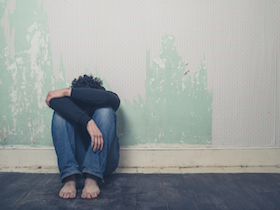Building Your Bipolar Coping Skills Toolbox for Bad Days
Yesterday was not my best day and I had to pull out my bipolar coping skills toolbox. It's not the first bad day that I've had and it won't be the last. Highs and lows are part of the territory of bipolar disorder. Learning to manage the extremes of bipolar disorder feels like something I'm constantly working on and that’s okay. Wellness is a journey and it can be improved by building your bipolar coping skills toolbox.
As miserable as it sounds, you can expect to have bad days with the chronic nature of bipolar disorder (Bad Days and Bad Mania in Bipolar Disorder). Perhaps you're feeling low and struggling to do the basic things. It doesn't feel good to have difficulty doing what seems easy. Maybe it's more than that and you’re in destructive mode. Not the best space to be in either. Recognizing that a not-so-good day can come in many shapes and sizes is important. Knowing how to help or find support for yourself at every stage of the disorder can be a lifesaver and part of that is your toolbox of bipolar coping skills.
Building Your Bipolar Coping Skills Toolbox
Chances are that your therapist has talked to you about your "toolbox," right? You know, the bipolar coping skills, exercises or techniques that you are highly encouraged to use on the days where things seem unruly. Coping skills may not fix everything, but what they can do is make things a little more manageable so that you can, slowly but surely, get yourself back to a place of balance. I find it helpful to have a list of my favorite coping skills on my phone since it is always with me and easily accessible.
Learning about different coping skills and strategies is a good place to start when building your bipolar coping skills toolbox. Some popular ones include talking to someone that you trust, journaling, listening to music, exercising or getting outside. Remember that everyone copes differently (Unique Mental Health Coping Skills for Bad Days). What works for one person may not work for another. Trying several strategies can give you great insight. You usually use more than one tool to make a repair. The more tools you have in your possession, the more work you can do (Self-Care Strategies for Bipolar Youth).
Realistically, you may have a day where you try at least three or four of your tools and you still feel terrible. It’s okay not to be okay. In these moments, it’s best to reach out. Remember, you don’t have to do it alone. Talk to your school counselor, therapist, psychiatrist or another trusted professional when you’re feeling out of control. Bad days are a part of life but they don’t have to defeat you. What matters is that you ask for help when you need it.
APA Reference
Dexter, G.
(2016, December 19). Building Your Bipolar Coping Skills Toolbox for Bad Days, HealthyPlace. Retrieved
on 2025, April 16 from https://www.healthyplace.com/blogs/bipolarvida/2016/12/buildingyourtoolboxforbaddays
Author: Geralyn Dexter
I have an actual box full of things I use for this and I keep my panic attack medication inside of it so that I'm forced to open it anytime I'm low enough to need the meds. I call it my happy box and it has something for each of the five senses to cheer me up or remind me of self care (special rose gold headphones to remember music helps, a perfume called beach that smells amazing and reminds me to relax and visualize happy times, make up to remind me to take care of my physical health etc etc). It doesn't change what's going on chemically but it always soothes and distracts me long enough to pull myself together enough that I can calm myself down without the meds. Since taking care of myself is the last thing on my mind mid meltdown, having a physical reminder of each of my self care techniques has helped more than any other method I've tried.
